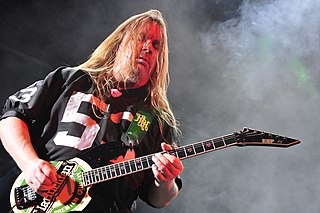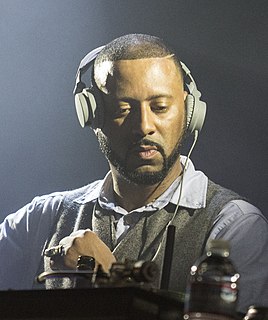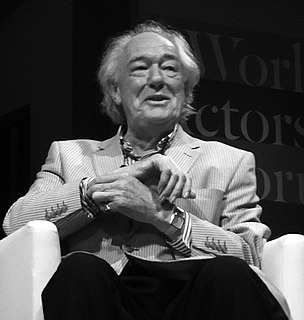A Quote by Jeff Hanneman
'Angel Of Death' was a big problem. I remember getting a phone call after the album was done: Sony wasn't going to release it.
Related Quotes
For me there's insecurity when you're releasing an album because you spend all of this time working on that one thing and then once it's done, it's done. After you put it out there to the public you never know which songs are going to work or even if the album is going to work as a whole so there is a little bit of nervousness around predicting what the numbers will be and if it's going to be well-received.
You see the kind of approach, because he [Doanld Trump] is a businessman. He's like, I'm going to pick up the phone, I'm gonna call that CEO and we're going to talk about this directly, instead of getting mired in a lot of the way down, you know, bureaucracy and red tape and having 25 assistants or deputies talk to somebody instead of going directly to the root of the problem.
So, The Color Purple changed my life. It changed everything about my life because, in that moment of praying and letting go, I really understood the principle of surrender. The principle of surrender is that, after you have done all that you can do, and you've done your best and given it your all, you then have to release it to whatever you call God, or don't call God.
When I finally stopped [singing], he had been saying, like, the last day or so, he'd been saying, now, I think we should put this one in the album. So without him saying I want to record you and release an album, he kept - he started saying, let's put this one in the album. So the album, this big question, you know, began to take form, take shape. And Rick [Rubin] and I would weed out the songs.
[Music From the Edge of Heaven] wasn't really an album at all. The band had made the decision to release an LP and then split up. We wanted to go out with a bang in Britain and the rest of the world by having a single that was four songs, not just one song. But we couldn't do that over here because we couldn't release a single without an album.




































